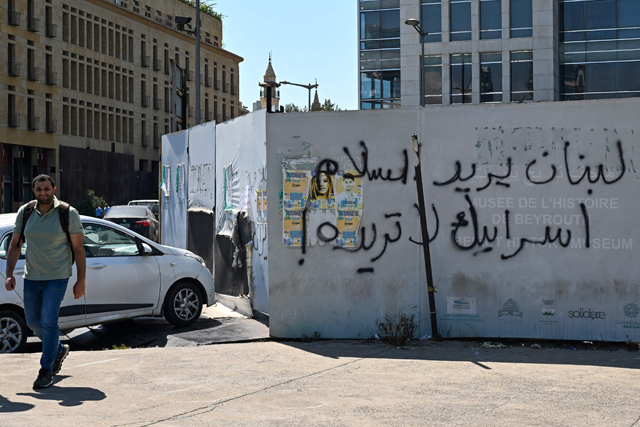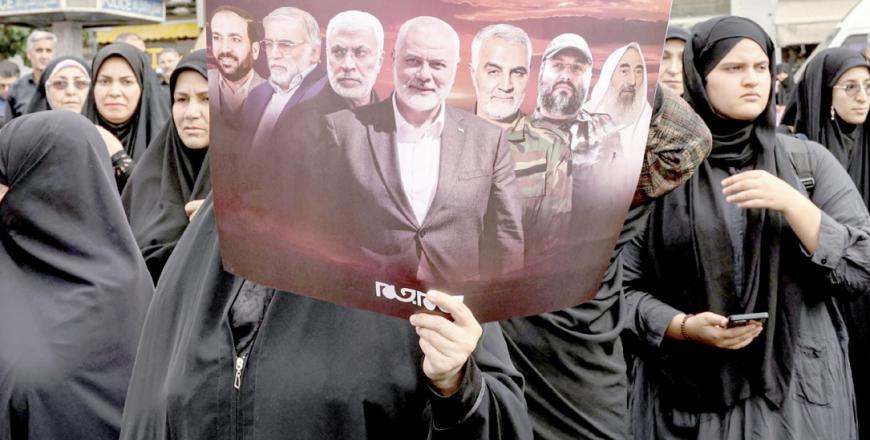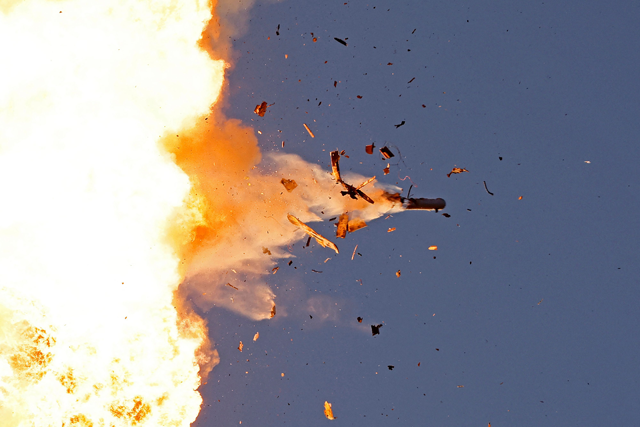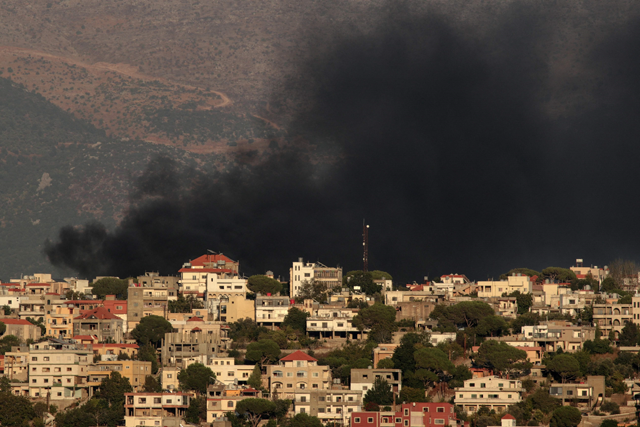You are here
Iran says expects Hizbollah to hit deeper inside Israel
By AFP - Aug 04,2024 - Last updated at Aug 04,2024

A Lebanese man walks past a graffiti that reads in Arabic: "Lebanon wants peace, Israel doesn't want it", at a street in downtown Beirut on August 2, 2024 (AFP photo)
TEHRAN — Iran said on Saturday it expects Lebanon's Tehran-backed Hizbollah group to hit deeper inside Israel and no longer be confined to military targets after Israel killed the Hezbollah military commander.
Hizbollah has been exchanging near-daily fire with Israeli forces, saying it is targeting military positions over the border, since its Palestinian ally Hamas attacked Israel on October 7, sparking war in Gaza.
But a strike claimed by Israel in an overcrowded residential area of South Beirut changed the calculus, Iran's mission to the United Nations said.
"We expect... Hizbollah to choose more targets and (strike) deeper in its response," said the mission quoted by the official IRNA news agency.
"Secondly, that it will not limit its response to military targets."
The strike on Tuesday killed Hezbollah commander Fuad Shukr. According to Lebanon's health ministry, five civilians -- three women and two children -- also died.
Israel said Shukr was responsible for rocket fire that killed 12 youths in the annexed Golan Heights, and had directed Hezbollah's attacks on Israel since the Gaza war began.
"Hizbollah and the (Israeli) regime had observed certain lines", including limiting strikes to border areas and military targets, Iran's mission said.
The Beirut strike crossed that line, it added.
Hours after Shukr's killing, the political leader of Hamas, Ismail Haniyeh, was killed in a pre-dawn "hit" on his accommodation in Tehran, Iran's Revolutionary Guards said.
Israel has declined to comment.
On Thursday, Hizbollah chief Hassan Nasrallah said Israel and "those who are behind it must await our inevitable response" to the killings of both Shukr and Haniyeh.
Iran and Hamas have also vowed to retaliate.
In Iran, the voices clamouring for revenge have intensified since Haniyeh's killing.
On Saturday, the ultraconservative Kayhan daily said retaliatory operations were expected to be "more diverse, more dispersed and impossible to intercept."
"This time, areas such as Tel Aviv and Haifa and the strategic centres and especially residences of some officials involved in the recent crimes are among the targets," Kayhan in an opinion piece.
Late Friday, an Iranian state TV presenter anticipated "astounding and major events" taking place "in the coming hours" in Israel.
Iran's Revolutionary Guards said Saturday that Israel killed Hamas political chief Ismail Haniyeh using a "short-range projectile" launched from outside of his accommodation in Tehran.
"This terrorist operation was carried out by firing a short-range projectile with a warhead of about 7 kilograms -- causing a strong explosion -- from outside the accommodation area," the Guards said in a statement.
It added that Israel was "supported by the United States" in the attack.
Haniyeh was killed early Wednesday in the Iranian capital where he was attending the swearing-in of the new president, Masoud Pezeshkian.
Iran and Hamas have vowed to retaliate.
The Guards repeated their insistence that Haniyeh would be avenged and that Israel would receive "a severe punishment at the appropriate time, place and manner".
Related Articles
TEHRAN — Iran held a funeral ceremony on Thursday with calls for revenge after the killing in Tehran of Hamas political chief Ismail Haniyeh
TEHRAN — Iran on Monday praised the drone and missile assault by Lebanon's Hezbollah group on Israel, saying its arch-foe had lost the abili
BEIRUT, Lebanon — Lebanon's health ministry said Friday Israeli strikes killed eight people including a child in different parts of the sout



















